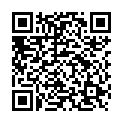|
|
|
| Module code: MST303 |
|
2V+2PA (4 hours per week) |
|
4 |
| Semester: 3 |
| Mandatory course: yes |
Language of instruction:
German |
Assessment:
Written exam, project work
[updated 25.07.2012]
|
MST303 Mechatronics and Sensor Technology, Bachelor, ASPO 01.10.2005
, semester 3, mandatory course
|
60 class hours (= 45 clock hours) over a 15-week period.
The total student study time is 120 hours (equivalent to 4 ECTS credits).
There are therefore 75 hours available for class preparation and follow-up work and exam preparation.
|
Recommended prerequisites (modules):
None.
|
Recommended as prerequisite for:
MST408 Microfabrication
[updated 06.08.2012]
|
Module coordinator:
Prof. Dr. Walter Calles |
Lecturer: Prof. Dr. Walter Calles
[updated 01.10.2005]
|
Learning outcomes:
1. Basic terminology: mechanical strength, deformation, fracture, tensile testing
2. Metallurgy overview: Crystal structure and microstructures; lattice defects and their significance for material deformation and strength)
3. Fundamentals of materials technology (diffusion, crystallization, alloy formation, precipitation, microstructural modification by diffusion-controlled processes)
4. Fundamentals of phase diagrams (cooling curves, basic typology of phase diagrams, schematic representation of microstructure formation, calculating phase composition)
5. Iron-carbon phase diagram (schematic and real microstructures, calculation of phase composition)
6. Steel (production and how production modifies material properties, steel designation systems)
7. Annealing, hardening and tempering of steel
8. Overview of steel grades for precision engineering and cast iron materials
9. Overview of non-ferrous materials (aluminium, titanium, copper and nickel materials)
10. Plastics (characteristic properties, fibre-reinforced materials)
11. Ceramics (structure, manufacture, classification and properties)
12. Materials testing (hardness, notched-bar impact testing, fracture toughness, vibration resistance, deformation testing) including independent testing by students with systematic documentation and analysis.
[updated 25.07.2012]
|
Module content:
[still undocumented]
|
Teaching methods/Media:
Seminar-based course, lab experiments and project work
[updated 25.07.2012]
|
Recommended or required reading:
Bargel/Schulze: Werkstoffe, Springer-Verlag
Bergmann: Werkstofftechnik, Teil 1, Grundlagen, Hanser
Heine: Werkstoffprüfung, Fachbuchverlag Leipzig
[updated 25.07.2012]
|


